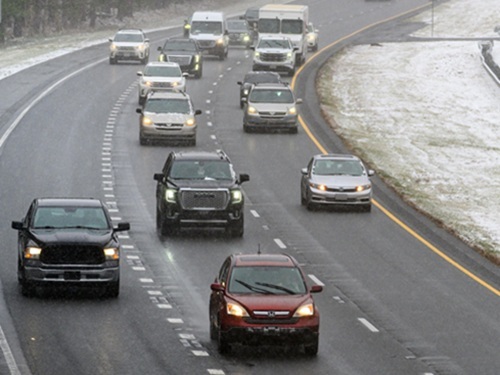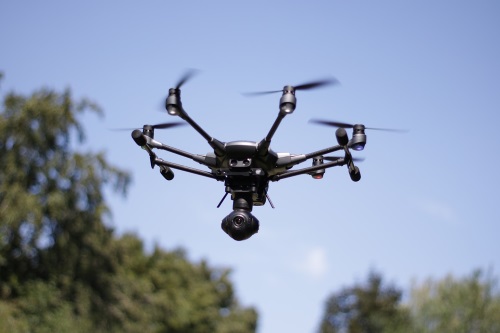Four federal agencies – the Department of Justice, the Federal Aviation Administration, the Department of Homeland Security, and the Federal Communications Commission – recently issued guidance to help non-federal public and private entities understand the federal laws and regulations that may apply to the use of capabilities to detect and mitigate threats posed by Unmanned Aircraft Systems (UAS) or drones.
[Above photo by Pixbay.]
That guidance – officially dubbed “Advisory on the Application of Federal Laws to the Acquisition and Use of Technology to Detect and Mitigate Unmanned Aircraft Systems” – provides a brief overview of various provisions of the U.S. criminal code, as well as federal laws and regulations related to aviation safety, transportation and airport security, plus radio frequency spectrums.

“As the number of drones in our airspace continue to rise, it is unsurprising that the availability of counter-drone technologies has likewise increased,” said Jeffrey Rosen, deputy attorney general, in a statement. “Because these technologies may be presented for sale without a full discussion of important legal requirements, this advisory steps forward to provide an outline of the relevant legal landscape. By encouraging a common understanding of potentially applicable laws, [it] can help foster responsible industry growth and promote public safety.”
He added those four agencies issued this advisory at a time when the commercial demand for UAS detection and mitigation is high, but the authority to use those capabilities is far from clear.
To date, Congress has given limited authority to four federal departments – Defense, Energy, Justice, and Homeland Security – to engage in UAS detection and mitigation activities, notwithstanding certain otherwise potentially applicable federal criminal laws.

Although those agencies emphasized that this advisory is an “important discussion of potentially applicable federal law and regulations in this space,” it also cautions “additional state or local laws may apply, and that entities should further consider the impacts such technology could have on privacy, civil liberties, and civil rights.”
In a related announcement, the FAA said it has to date authorized 26 schools to participate in its UAS Collegiate Training Initiative or UAS-CTI program.
The FAA said its CTI program allows educational institutions to collaborate with the FAA to help students pursue their aviation career goals while preparing students for careers involving drone operations and other UAS activities.
 Nation
Nation
Registration Open for AASHTO’s Winter Rail Meeting
December 19, 2025 Nation
Nation

